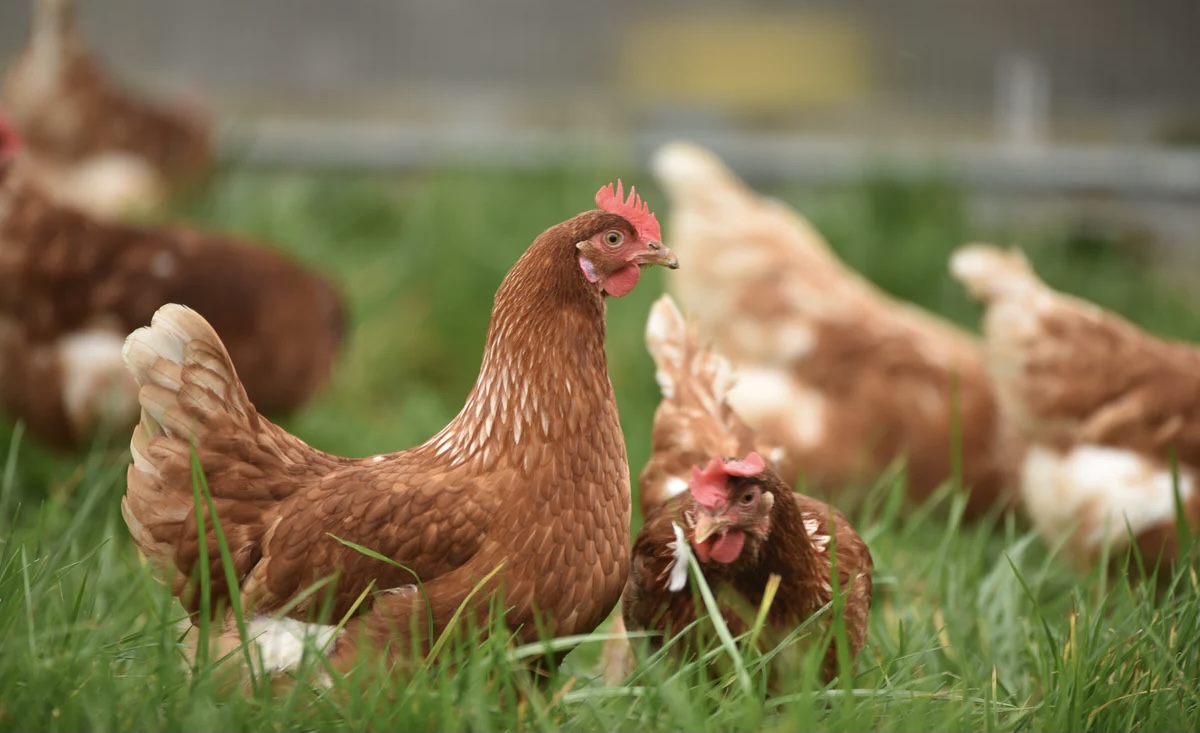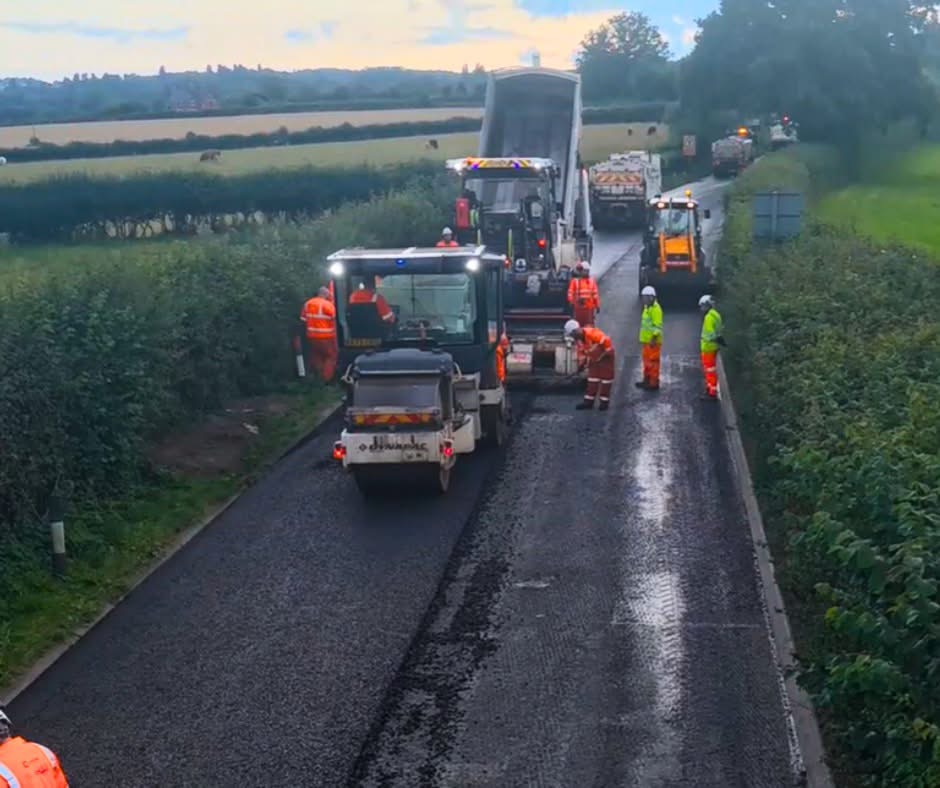An Avian Influenza Prevention Zone (AIPZ) has been declared across Great Britain effective from 5pm on 3 November 2021 – see the AIPZ section for further information.
Update 8 November 2021
- Avian influenza H5N1 has been confirmed in a small poultry unit at a premises near Alcester, Bidford, Warwickshire. Further testing has confirmed this to be a highly pathogenic strain (HPAI H5N1). A 3km Protection Zone and 10km Surveillance Zone have been declared around the premises.
- For details of the cases and the measures that apply in the disease control zones, see the avian influenza: cases and disease control zones in England guidance.
Update 5 November 2021:
- From 00:01 on 8 November 2021 no gatherings of poultry, galliforme or anseriforme birds are permitted. Galliforme birds include pheasants, partridge, quail, chickens, turkey and guinea fowl. Anseriforme birds include ducks, geese and swans. See our bird gatherings guidance for further information.
- Avian influenza H5N1 has been confirmed in birds at a premises in the Angus constituency in Scotland. Further testing has confirmed this to be a highly pathogenic strain (HPAI H5N1). Following confirmation of the pathogenicity, the Temporary Control Zones have been revoked and replaced by a 3km Protection Zone, 10km Surveillance Zone and 10km Restricted Zone.
- Disease Control Zones remain in force around premises near Chirk, Wrexham, Wales and a premises near Droitwich Spa, Wychavon, Worcestershire, England
- There have been multiple findings of HPAI H5N1 in wild birds from sites across GB. See our Wild birds in England section for further information.
Avian Influenza Prevention Zone
An Avian Influenza Prevention Zone (AIPZ) has been declared across Great Britain effective from 5pm on 3 November 2021. The AIPZ means all bird keepers in Great Britain (whether they have pet birds, commercial flocks or just a few birds in a backyard flock) are required by law to take a range of biosecurity precautions.
Separate AIPZ declarations have been made in each Great Britain administration.
Further details of the measures that apply in the AIPZ in England can be found in the Avian Influenza Prevention Zone declaration (PDF, 184KB, 7 pages).
For further information on the AIPZ in:
- Scotland – see the Scottish Government website
- Wales – see the Welsh Government website
To assist all bird keepers in complying with the new rules, we’ve updated the biosecurity guidance and self-assessment checklist.
The decision to implement the AIPZ on the 3 November 2021 was made due to evidence from Europe and on avian influenza findings in wild birds in Great Britain. It follows a risk assessment containing the latest scientific evidence and veterinary advice.
The AIPZ now in force across Great Britain, does not include a requirement to house birds. However, this is being kept under constant review. With the increased risk of avian influenza during the winter, the need to include a mandatory housing requirement in the AIPZ may happen. Further disease control measures will be based on the latest scientific evidence and veterinary advice.
Risk level
The risk of incursion of highly pathogenic (HPAI) avian influenza H5 in wild birds has increased from medium (event occurs regularly) to high (event occurs often) for wild birds.
The risk of poultry and captive bird exposure to HPAIH5 across Great Britain has increased from low (with medium uncertainty) to medium (with medium uncertainty) where biosecurity on premises is below the required standard. Where stringent biosecurity measures are in place, the risk has increased from low (with low uncertainty) to low (with medium uncertainty).
All bird keepers are encouraged to maintain high standards of biosecurity as good practice for the health of their birds, and that good biosecurity is an essential defence against diseases such as avian influenza and is key to limiting the spread of avian influenza in an outbreak.
Further details on the evidence which supported these decisions can be found in our risk assessments.
The UK Health Security Agency (UKHSA) has said that avian influenza is primarily a disease of birds and the risk to the general public’s health is very low.
The Food Standards Agency has said that on the basis of the current scientific evidence, avian influenza poses a very low food safety risk for UK consumers. Properly cooked poultry and poultry products, including eggs, are safe to eat.
Avian influenza is unconnected with coronavirus (COVID-19).
See the advice for the public for further information.
Cases in the UK
Cases in England
The following cases of highly pathogenic avian influenza (HPAI) H5N1 have been confirmed in England:
- near Alcester, Bidford, Warwickshire (small commercial poultry flock)
- near Droitwich Spa, Wychavon, Worcestershire (rescue centre – captive birds – non-poultry)
For details of these cases and the measures that apply in the disease control zones, see the avian influenza: cases and disease control zones in England guidance.
Cases in Scotland
The following case of highly pathogenic avian influenza (HPAI) H5N1 has been confirmed at a premises in Scotland:
- in the Angus constituency
See the Scottish Government website for further information.
Cases in Wales
The following case of highly pathogenic avian influenza (HPAI) H5N1 has been confirmed at a premises in Wales:
- near Chirk, Wrexham, Wales (backyard chickens and wild birds)
See the Welsh Government website for further information.
Cases in Northern Ireland
There have been no cases of avian influenza confirmed in Northern Ireland during the 2021 to 2022 season.
See the DAERA-NI website for further information.
Source / Full Details – https://www.gov.uk/guidance/avian-influenza-bird-flu




